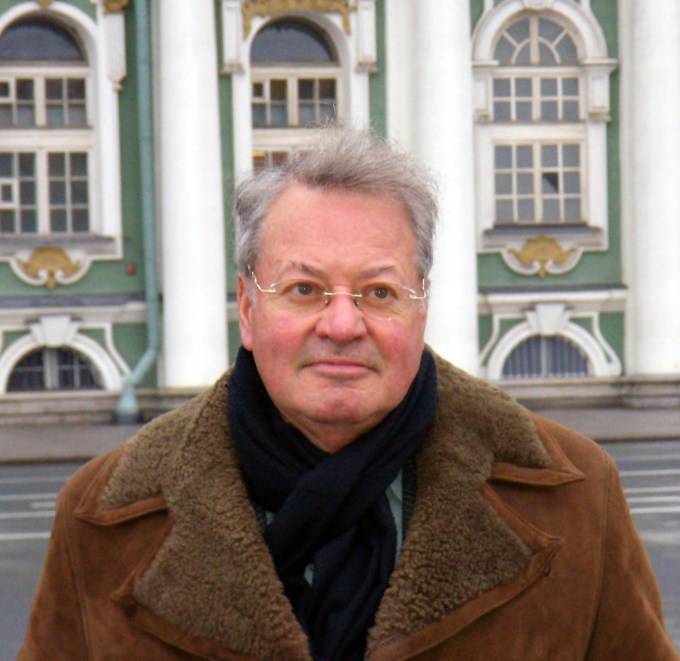In a long and rewarding career, which began in Cambridge as a student of the natural sciences, I have been deeply fascinated by the history of science and the manner in which the production of scientific knowledge has been shaped by the cultural contexts in which it has been pursued. In addition to research and writing on the history of chemistry, I soon developed a particular interest in the historical relations between scientific innovation and religious belief. In many publications, I have emphasised the richness, diversity and complexity of these relations in contrast to their depiction in popular myths and legends.
After many happy years teaching in the history department at Lancaster University, I was privileged in 1999 to be appointed the first Andreas Idreos Professor of Science and Religion at the University of Oxford. Building on many years teaching and research experience, it was both a challenge and delight to devise and teach a Masters programme in science & religion and, through many international speaking engagements, to raise the profile of what has become a major field of study.
In Oxford it was a particular pleasure to be a Fellow of Harris Manchester College, which is distinctive in admitting only mature students. I remain an Emeritus Fellow of the College and, following retirement, have enjoyed additional affiliation with the universities of Durham, Leeds and London (University College). I am probably best known for my book Science and Religion: Some Historical Perspectives, which Cambridge University Press republished in 2014 in its “Canto Classics” series. My leisure interests have included playing cricket, chess, foreign travel, music, especially opera, and (for which I was apparently singled out by Who’s Who for my eccentricity) rhododendrons.
John Hedley Brooke studied the natural sciences at Cambridge University, obtaining a first class honours degree in 1965. Having obtained a distinction in his study of the history and philosophy of science, his Cambridge doctoral thesis was devoted to the development of organic chemistry in the nineteenth century.
A Research Fellow at Fitzwilliam College, Cambridge (1967-68), his first academic appointment was in the school of mathematical and physical sciences at the University of Sussex (1968-69). From 1969-99 he taught in the History Department at Lancaster University, becoming a member of the International Academy of the History of Science in 1993. In 1995, with Professor Geoffrey Cantor, he gave the Gifford Lectures at Glasgow University.
In 1999 he was appointed the first Andreas Idreos Professor of Science & Religion at Oxford University, Director of the Ian Ramsey Centre and Fellow of Harris Manchester College. From 2000 to 2003 he coordinated the European Science Foundation’s Network on “Science and Human Values”. Following retirement in 2006, he spent time as a “Distinguished Fellow” at the Institute of Advanced Study, University of Durham (2007). He has lectured worldwide and in November 2001 gave the annual “Distinguished Lecture” of the History of Science Society.
Research interests have embraced the history of organic chemistry, the British natural theology tradition from the seventeenth to the nineteenth century, Victorian science, and the evaluation of the sciences in different religious cultures.
John Hedley Brooke is best known for Science and Religion: Some Historical Perspectives (Cambridge 1991), which won the Watson Davis Prize of the History of Science Society and has been translated into other languages including Chinese, Greek, Japanese, Korean, Portuguese, Romanian, Russian and Spanish. In 2014 this book was reissued in Cambridge University Press’s prestigious Canto Classics series. Other books include: Thinking About Matter (Ashgate, 1995) and (with Geoffrey Cantor) Reconstructing Nature: The Engagement of Science & Religion (Edinburgh 1998). In the historiography of science and religion he is widely recognised for the development of an influential “complexity thesis”. This aspect of his contribution has been examined in Science and Religion: New Historical Perspectives, eds. Thomas Dixon, Geoffrey Cantor and Stephen Pumfrey (CUP 2010) and Rethinking History, Science and Religion: An Exploration of Conflict and the Complexity Principle, ed. Bernard Lightman (Pittsburgh UP 2019).
Author of several texts for the Open University Course Science and Belief from Copernicus to Darwin (1974), he has co-edited Science in Theistic Contexts (Chicago 2001), Heterodoxy in Early Modern Science and Religion (Oxford 2005), Religious Values and the Rise of Science in Europe (Istanbul 2005), and Science & Religion around the World (New York 2011). His publications also include more than 100 journal articles and book chapters. Among these are contributions to The Cambridge Companion to Darwin, The Cambridge Companion to the “Origin of Species”, The Cambridge Companion to Science and Religion, The Oxford Handbook of Religion and Science, The Oxford Handbook of Nineteenth-Century British Philosophy, and The Oxford Handbook of the Reception History of the Bible. Together with Fraser Watts, he was Editorial Consultant for The Oxford Handbook of Natural Theology (2013).
A former Editor of the British Journal for the History of Science, he has been President of the British Society for the History of Science, President of the Historical Section of the British Science Association, President of the UK Forum for Science & Religion and President of the International Society for Science and Religion.
John Hedley Brooke is an Emeritus Fellow of Harris Manchester College Oxford University and an Honorary Fellow of the International Society for Science & Religion (ISSR).
To listen to 15 interviews charting his development as an academic, recorded by the British Library under their Oral History of British Science project, go to: http://sounds.bl.uk/Oral-history/Science. The interviews are listed under Hedley Brooke, John [G-I]. The catalogue reference is C1672/08.
Contact e mail: johnhedleybrooke@gmail.com
